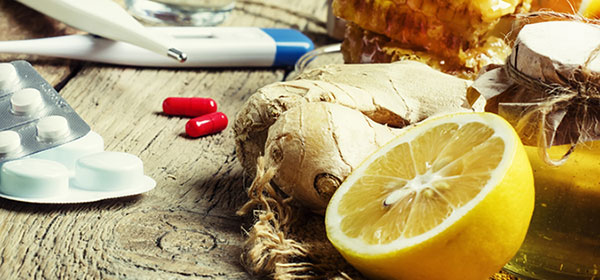Prescription antibiotics, such as penicillin, have helped people to recover from otherwise fatal diseases and conditions since the 1940s.
A new trend, however, is seeing people turn to natural antibiotics for treatment.
Are these safe to use? When are natural antibiotics a better choice than the prescription solution?
With the increasing prevalence of drug-resistant bacteria, even scientists are starting to look to more natural solutions, where possible.
Here are some of the leading substances with antibacterial properties and the science behind what they offer.
Garlic
Cultures across the world have long recognised garlic for its preventive and curative powers. Research has found that garlic can be an effective treatment against many forms of bacteria, including Salmonella and Escherichia coli (E. coli). Garlic has even been considered for use against multi-drug resistant tuberculosis.
Honey
This one has been around for a while. Healers have long used honey to help wounds heal and prevent or draw out infection. Even today some healthcare professionals have found it helpful in treating chronic wounds, burns, ulcers, bedsores and skin grafts. The antibacterial effects of honey are usually attributed to its hydrogen peroxide content. However, while Manuka honey fights off bacteria, it has a lower hydrogen peroxide content. A 2011 study reported that the best-known type of honey inhibits approximately 60 kinds of bacteria.
Ginger
Several studies, including one published in 2017, have demonstrated ginger’s ability to fight many strains of bacteria. Researchers are also exploring ginger’s power to combat seasickness and nausea, and to lower blood sugar levels.
Clove
Clove has traditionally been used in dental procedures. Research is now finding that clove water extract may be effective against many different kinds of bacteria, including E. coli.
Are they safe?
Just because something is labelled natural, it is not necessarily safe.
While cooked garlic is usually safe to consume, research suggests that taking concentrated garlic may increase the risk of bleeding. This can be dangerous for people facing surgery or taking blood thinners.
Taking the substances themselves in their naturally occurring state is unlikely to cause much harm, but if they are the active ingredient in supplements, you may want to check with your GP first.
Read more at medicalnewstoday.com
Health disclaimer: This article contains general information about health issues and is not advice. For health advice, consult your medical practitioner.
Related articles:
Do antibiotics and alcohol mix?
Are antibiotics really the answer?
How to minimise medical mistakes

